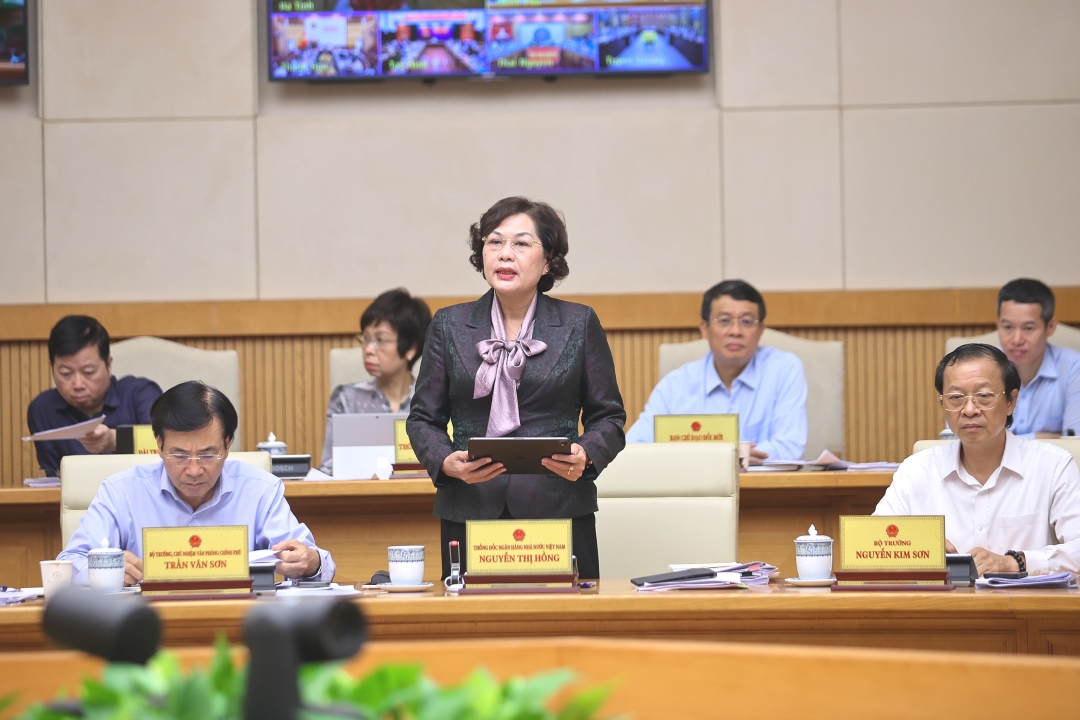HCMC — The State Bank of Vietnam (SBV), the nation’s central bank, is closely monitoring lending to the real estate and securities sectors, amid rising loans and concerns about credit risks, said Governor Nguyen Thi Hong at a regular Government meeting on August 7.
Credit growth in the banking system rose nearly 10% in the first seven months of this year compared to the end of 2024, a strong increase versus 6% in the same period last year, according to data from the SBV.
Real estate and securities loans have grown faster than average. However, Hong said this reflects demand following efforts to remove legal bottlenecks in property development. Loans to the stock market remain limited at 1.5% of total outstanding loans.
The central bank said it is maintaining key safety thresholds, with short-term capital used for medium- and long-term lending still below the 30% ceiling.
Hong said Vietnam faces external headwinds, including higher U.S. interest rates, global trade tensions, and exchange rate pressure. The Vietnamese dong has weakened 2.9% against the U.S. dollar so far this year.
Despite these pressures, the central bank has cut loan rates by 0.4 percentage point since late 2024 to ease financing costs. Further cuts will depend on exchange rate stability, Hong added.
Average inflation was 3.6% in the first seven months, within the National Assembly’s target of 4.5% to 5%. However, core inflation has risen due to higher prices for electricity, housing, and healthcare services.
The central bank reported a 7.5% increase in money supply so far this year. This was driven by banking sector restructuring and special loans related to the restructuring of poor-performing banks.
Looking ahead, the SBV said Vietnam needs to develop capital markets to meet long-term financing needs and reduce reliance on short-term bank loans. The central bank also called for expanding credit guarantee programs for small and medium-sized enterprises.









